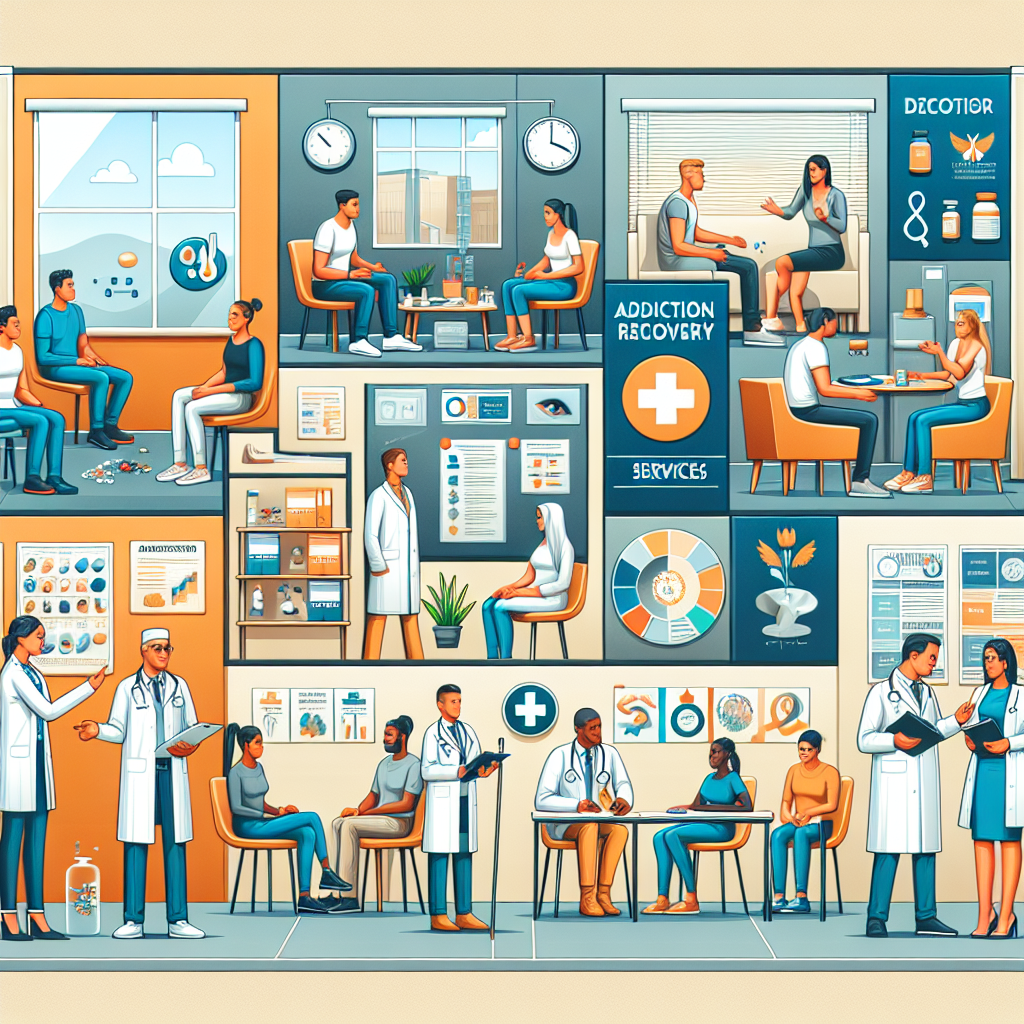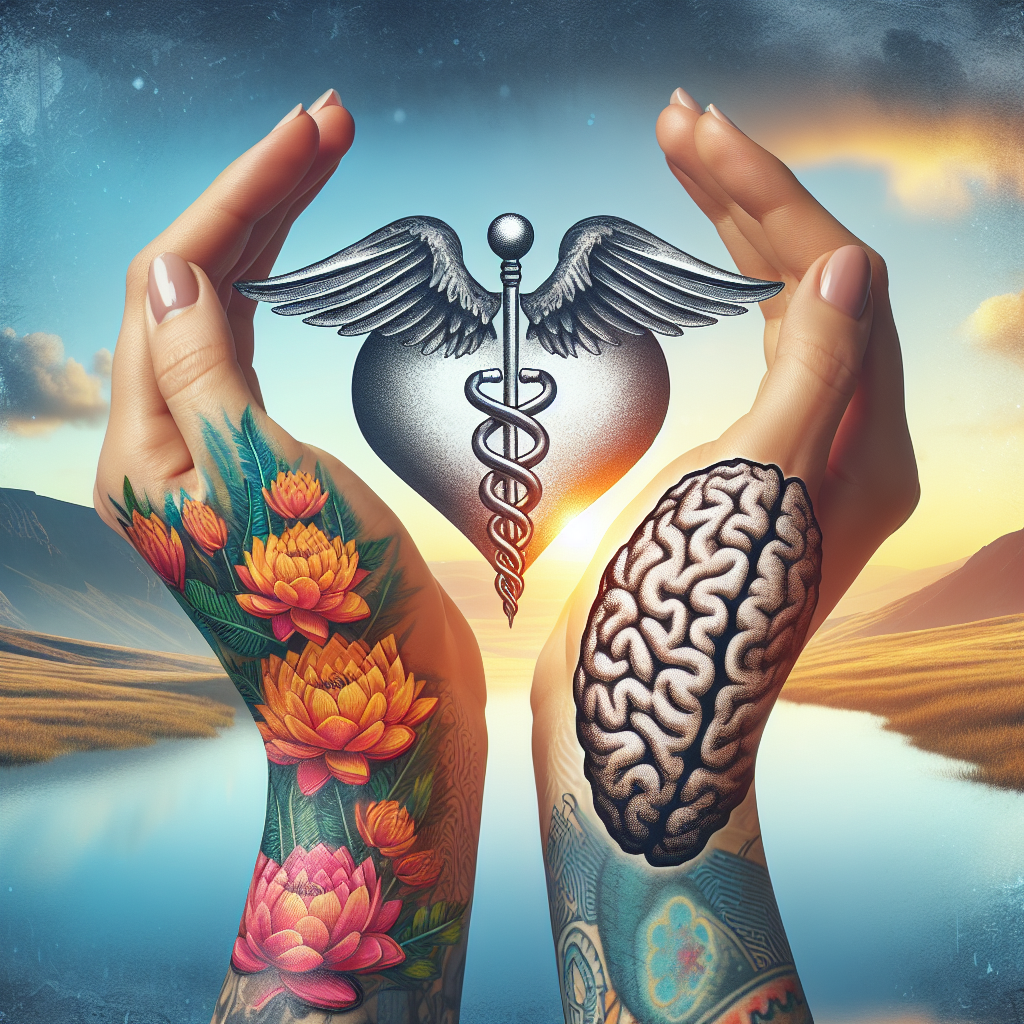-
Table of Contents

“Holistic Healing: Integrating Mental Health and Addiction Recovery for Lasting Wellness.”
Introduction
Addiction recovery services increasingly recognize the intricate link between substance use disorders and mental health conditions, leading to a more integrated approach in treatment. This integration involves a comprehensive assessment to identify co-occurring mental health issues, followed by the development of a personalized treatment plan that addresses both addiction and mental health needs. Multidisciplinary teams, including psychiatrists, psychologists, and addiction specialists, collaborate to provide a combination of therapies such as cognitive-behavioral therapy (CBT), medication management, and support groups. By addressing the underlying mental health issues alongside addiction, these services aim to improve overall outcomes, reduce the risk of relapse, and support long-term recovery.
Integrating Mental Health Treatment in Addiction Recovery: Best Practices and Approaches
Integrating mental health treatment into addiction recovery services is a multifaceted approach that addresses the complex interplay between substance use disorders and mental health conditions. This holistic strategy is essential because many individuals struggling with addiction also face co-occurring mental health issues, such as depression, anxiety, or post-traumatic stress disorder (PTSD). By recognizing and treating these interconnected problems simultaneously, recovery services can offer more comprehensive and effective support, ultimately leading to better outcomes for those in need.
One of the best practices in integrating mental health treatment into addiction recovery is the use of dual diagnosis treatment programs. These programs are specifically designed to address both substance use disorders and mental health conditions concurrently. By doing so, they help to break the cycle where untreated mental health issues can exacerbate addiction, and vice versa. Dual diagnosis treatment often involves a combination of therapies, including cognitive-behavioral therapy (CBT), dialectical behavior therapy (DBT), and medication management, tailored to meet the unique needs of each individual.
Moreover, the importance of a personalized treatment plan cannot be overstated. Each person’s journey through addiction and mental health challenges is unique, and a one-size-fits-all approach is rarely effective. Personalized treatment plans take into account the individual’s specific circumstances, including their history, the severity of their conditions, and their personal goals for recovery. This tailored approach ensures that the treatment is relevant and effective, providing the best possible chance for long-term recovery.
In addition to personalized treatment plans, the integration of mental health services into addiction recovery often involves a multidisciplinary team of professionals. This team typically includes addiction counselors, psychiatrists, psychologists, social workers, and other healthcare providers who work collaboratively to address all aspects of the individual’s health. By bringing together diverse expertise, these teams can offer a more comprehensive and nuanced approach to treatment, ensuring that all facets of the individual’s well-being are considered.
Furthermore, peer support plays a crucial role in the integration of mental health treatment within addiction recovery services. Peer support groups, such as Alcoholics Anonymous (AA) or Narcotics Anonymous (NA), provide a sense of community and shared experience that can be incredibly empowering for individuals in recovery. These groups often incorporate discussions about mental health, helping members to understand that they are not alone in their struggles and that recovery is possible. The sense of belonging and mutual support found in these groups can be a powerful motivator for individuals to stay committed to their recovery journey.
Another key component of integrating mental health treatment into addiction recovery is ongoing education and training for healthcare providers. Addiction and mental health are dynamic fields, with new research and best practices emerging regularly. By staying informed about the latest developments, healthcare providers can offer the most effective and up-to-date treatments to their patients. Continuous education also helps to reduce stigma and increase understanding of the complex relationship between addiction and mental health, fostering a more compassionate and supportive treatment environment.
In conclusion, the integration of mental health treatment into addiction recovery services is a comprehensive approach that addresses the intricate relationship between substance use disorders and mental health conditions. Through dual diagnosis programs, personalized treatment plans, multidisciplinary teams, peer support, and ongoing education, recovery services can provide holistic and effective care. This integrated approach not only enhances the chances of successful recovery but also inspires hope and resilience in individuals as they navigate their path to a healthier, more fulfilling life.
The Role of Dual Diagnosis in Comprehensive Addiction Recovery Services
In the journey toward overcoming addiction, the integration of mental health treatment within addiction recovery services has become increasingly recognized as essential. This holistic approach, often referred to as dual diagnosis, addresses both substance use disorders and co-occurring mental health conditions simultaneously. By doing so, it provides a more comprehensive and effective pathway to recovery, acknowledging the intricate interplay between mental health and addiction.
One of the primary reasons for integrating mental health treatment into addiction recovery services is the high prevalence of co-occurring disorders. Many individuals struggling with addiction also face mental health challenges such as depression, anxiety, bipolar disorder, or post-traumatic stress disorder (PTSD). These conditions can exacerbate substance use, creating a vicious cycle that is difficult to break without addressing both issues concurrently. By recognizing and treating these co-occurring disorders, recovery services can offer a more tailored and effective approach, ultimately leading to better outcomes for individuals on their path to sobriety.
Moreover, the integration of mental health treatment helps to address the root causes of addiction. Often, substance use is a coping mechanism for underlying emotional pain or psychological distress. By providing mental health support, recovery services can help individuals develop healthier coping strategies and build resilience. This not only aids in the immediate recovery process but also equips individuals with the tools they need to maintain long-term sobriety. For instance, cognitive-behavioral therapy (CBT) and other therapeutic modalities can be instrumental in helping individuals understand and change the thought patterns that contribute to their substance use.
In addition to addressing the root causes of addiction, integrating mental health treatment into recovery services also fosters a more supportive and empathetic environment. When individuals feel understood and supported in their mental health struggles, they are more likely to engage in the recovery process and stay committed to their treatment plans. This sense of understanding and support can be particularly powerful in group therapy settings, where individuals can share their experiences and learn from others who are facing similar challenges. The camaraderie and mutual support that develop in these settings can be a vital source of strength and motivation.
Furthermore, the integration of mental health treatment into addiction recovery services promotes a more personalized approach to care. Each individual’s journey to recovery is unique, and a one-size-fits-all approach is often insufficient. By incorporating mental health treatment, recovery services can develop individualized treatment plans that address the specific needs and circumstances of each person. This personalized approach not only enhances the effectiveness of treatment but also empowers individuals to take an active role in their recovery.
The role of dual diagnosis in comprehensive addiction recovery services cannot be overstated. By addressing both substance use disorders and co-occurring mental health conditions, recovery services can provide a more holistic and effective approach to treatment. This integration helps to address the root causes of addiction, fosters a supportive and empathetic environment, and promotes a personalized approach to care. As a result, individuals are better equipped to achieve and maintain long-term sobriety, ultimately leading to healthier and more fulfilling lives. The journey to recovery is undoubtedly challenging, but with the right support and treatment, it is entirely possible to overcome addiction and build a brighter future.
Q&A
1. Addiction recovery services often integrate mental health treatment by providing dual diagnosis programs that address both substance use disorders and co-occurring mental health conditions simultaneously.
2. These services may include a combination of therapies such as cognitive-behavioral therapy (CBT), medication management, and support groups to ensure comprehensive care for both addiction and mental health issues.
Conclusion
Addiction recovery services integrate mental health treatment by employing a holistic approach that addresses both substance use disorders and co-occurring mental health conditions. This integration often involves the use of dual diagnosis treatment plans, which include a combination of psychotherapy, medication management, and support groups. Cognitive-behavioral therapy (CBT), dialectical behavior therapy (DBT), and other evidence-based therapies are commonly used to address underlying psychological issues. Additionally, these services may offer psychiatric evaluations, individualized treatment plans, and continuous monitoring to ensure comprehensive care. By treating both addiction and mental health issues simultaneously, recovery services aim to improve overall outcomes and reduce the risk of relapse.



